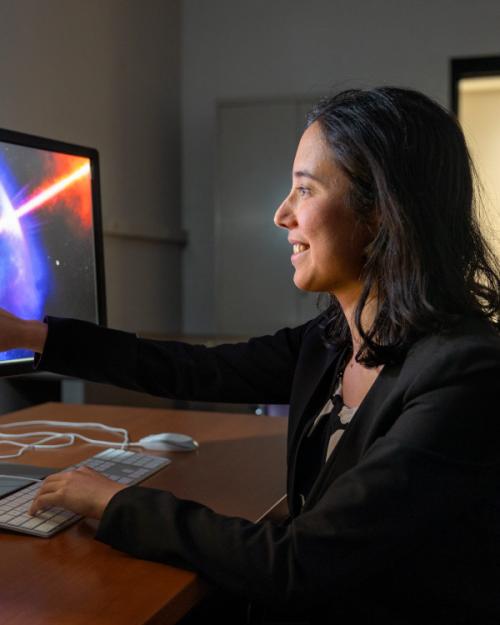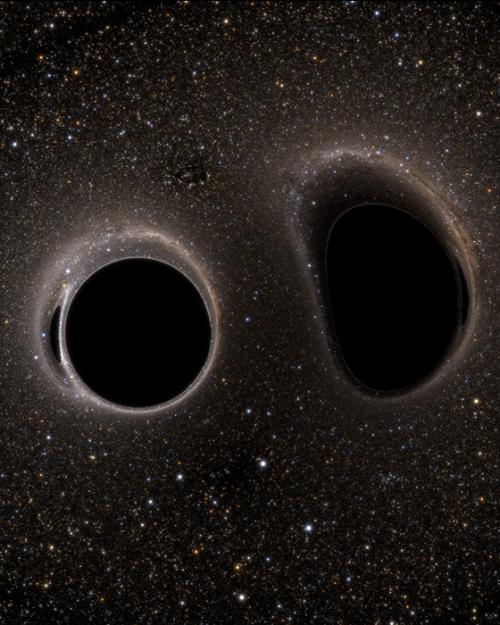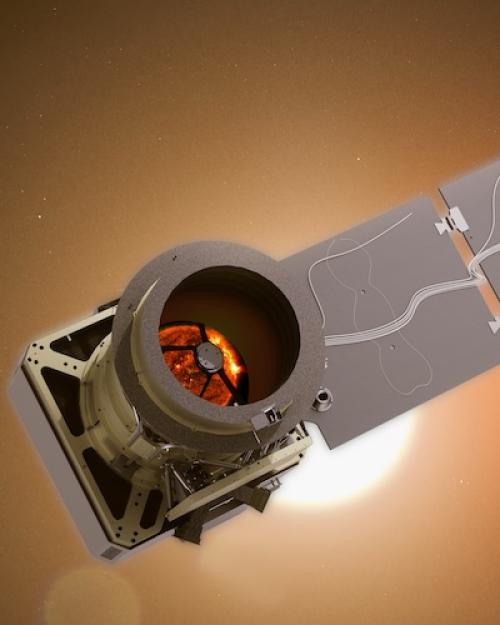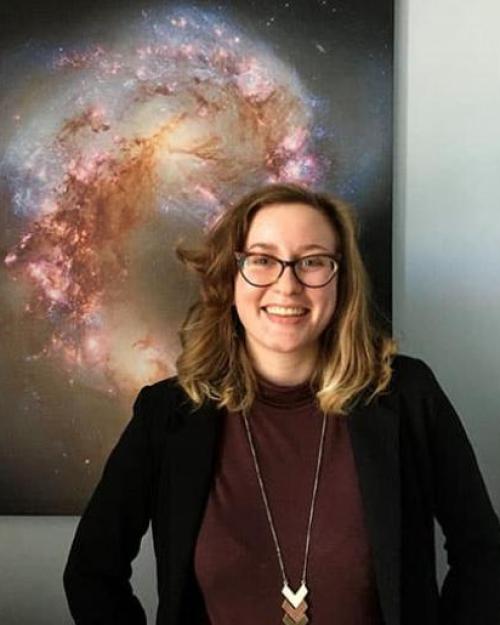Cornell is now able to welcome Brinson Prize postdoctoral fellows, joining a select group of institutions that host the prestigious astronomy fellowship program.
A collaboration between The Brinson Foundation and the Space Telescope Science Institute (STScI), the Brinson Prize supports postdoctoral scholars in carrying out novel research in observational cosmology. The program emphasizes projects that complement and capitalize on the latest space science, including topics such as the first stars, the cosmic distance scale, and the development of large-scale structure.
The application period is open now through Nov. 2, said Jonathan Lunine, the David C. Duncan Professor in the Physical Sciences in the College of Arts and Sciences (A&S) and chair of the department. He said the Cornell Department of Astronomy could be a particularly good fit for early-career astrophysicists and cosmologists who are committed to pursuing bold ideas through innovative research. He encourages prospective applicants to look at the astrophysical and cosmological research going on in the department.
“We have world-class research programs in cosmology, time-domain astronomy, and other areas of astrophysics, including some in collaboration with faculty in the physics department. Cornell also has a groundbreaking new astronomical facility– the Fred Young Submillimeter Telescope – that will soon be operational,” he said.
Stella Ocker, Ph.D. ’23 won a Brinson Prize fellowship this year, and she said her doctoral studies at Cornell prepared her. She studied pulsars, fast radio bursts and interstellar and circumgalactic plasma.
“At Cornell, I learned how to identify interesting and critical questions in my field, obtain access to funding and telescope resources, and communicate my research to the rest of the field and the broader public,” Ocker said. “Cornell astronomy covers a really unique breadth of research programs across planetary science and astrophysics, and I felt that having access to this breadth and learning from both professors and peers across many subfields really taught me how to contextualize my research and identify open problems that are both ambitious and achievable.”
Ocker began her Brinson Fellowship Sept. 1 at the California Institute of Technology and Carnegie Observatories in Pasadena, California (the first Brinson fellow to have a joint position.) During her fellowship, Ocker plans to synthesize state-of-the-art optical and radio surveys, including the Sloan Digital Sky Survey V and the Deep Synoptic Array, in order to build a distance ladder for using fast radio bursts as probes of the universe’s large-scale structure.
“The Brinson Prize provides postdoctoral fellows with the opportunity to pursue independent, ambitious research programs while building professional networks that will last long into their careers, Ocker said. “For me, having this fellowship means that I can build a set of research initiatives that are uniquely tailored to my goals and enjoy unparalleled access to the resources I need to accomplish those goals.”
Cornell astronomers Martha Haynes, Distinguished Professor of Arts and Sciences in Astronomy (A&S), and Anna Y.Q. Ho, assistant professor of astronomy (A&S), were instrumental in establishing Cornell as a Brinson Prize institution, Lunine said.
Other participating institutions are: California Institute of Technology; Johns Hopkins University; Massachusetts Institute of Technology; Northwestern University; Princeton University; Stanford University; University of Arizona; University of California, Berkeley; University of Chicago; University of Washington; and Observatories of the Carnegie Institution for Science.





